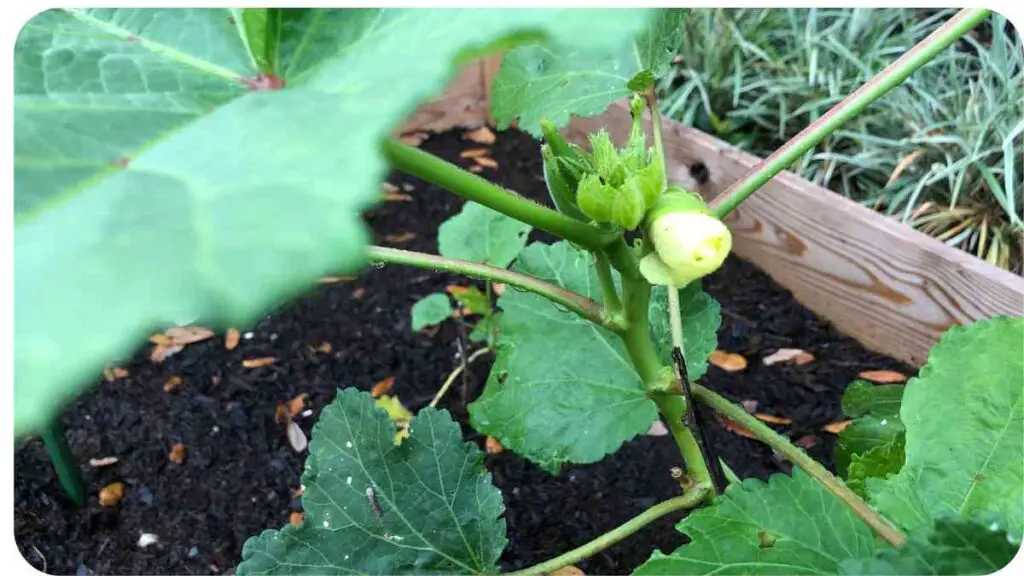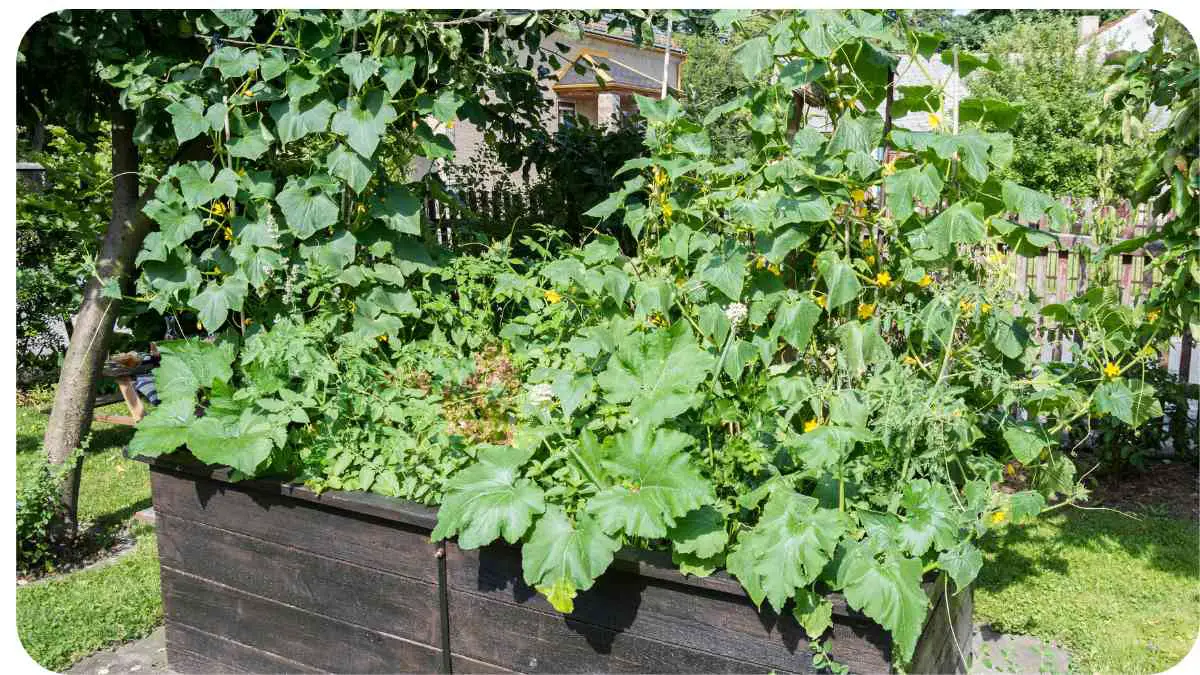Are your plants in raised beds not growing as you expected? Frustrating, right? Raised beds are supposed to give you better control over soil quality, but sometimes things don’t go as planned. Stunted growth is a common issue many gardeners face, especially with the unpredictability of weather, pests, and soil conditions. So, what causes this frustrating problem, and how can you fix it?
Let’s dive into the details of what might be holding your garden back and explore ways to troubleshoot stunted growth in raised beds.
| Key Takeaway |
|---|
| Stunted growth in raised beds can result from soil compaction, nutrient deficiencies, watering issues, and pests. |
| Regularly add organic matter like compost to prevent soil compaction and nutrient depletion. |
| Balance watering by checking soil moisture and using drip irrigation systems to avoid over- or under-watering. |
| Monitor plants for signs of pests and diseases, and use natural methods or companion planting to manage them. |
| Conduct soil tests periodically to identify and address nutrient deficiencies for optimal plant growth. |
Understanding Stunted Growth in Raised Beds

What is Stunted Growth?
Stunted growth refers to the slowed or halted development of plants. Plants either stop growing altogether or grow at an unusually slow rate, often appearing weak, small, and unhealthy. It’s like a pause button has been hit on their growth.
When dealing with soggy garden beds, it’s crucial to address drainage issues. Proper soil drainage ensures your raised beds remain healthy and productive, preventing stunted growth and other common problems.
How Common is Stunted Growth in Raised Beds?
Surprisingly common. While raised beds are great for controlling soil conditions, other factors like watering, pests, and nutrient deficiencies can still affect plant growth. Gardeners who don’t monitor their raised beds closely can run into this issue without even realizing what’s causing it.
Top Causes of Stunted Growth in Raised Beds
Soil Compaction
One of the main culprits is soil compaction. In raised beds, soil can easily become too packed, restricting roots from spreading out and accessing necessary nutrients. It’s like trying to breathe with a pillow over your face not ideal for your plants.
If your plants are wilting despite regular watering, it may be time to explore potential causes. Understanding the mystery of wilting plants is essential for diagnosing and fixing the issue effectively.
Nutrient Deficiency
Lack of essential nutrients, such as nitrogen, phosphorus, and potassium, can stunt plant growth. Without these building blocks, your plants are like marathon runners who haven’t eaten lethargic and unable to perform.
| Nutrient | Role in Plant Growth | Symptoms of Deficiency |
|---|---|---|
| Nitrogen | Promotes leafy growth | Yellowing of leaves |
| Phosphorus | Root and flower formation | Stunted roots, purple leaves |
| Potassium | Overall plant health | Brown leaf edges |
Watering Issues
Watering seems simple enough, right? But either too much or too little water can cause major issues. Plants in raised beds can dry out quicker than those in the ground because they’re exposed to more air. On the flip side, overwatering can lead to root rot.
Pests and Diseases
Sneaky pests and diseases can wreak havoc on your raised beds. From aphids to fungal infections, these unwanted guests can lead to stunted growth before you even realize they’re there.
How to Identify the Cause of Stunted Growth
Physical Inspection of Plants
Look for signs of pests or diseases, such as discolored leaves, bite marks, or unusual growth patterns. Healthy plants should have bright, vibrant leaves and sturdy stems. Anything less might indicate trouble.
Uneven lawn growth can be frustrating, but identifying the causes and applying the right solutions can make a big difference. Learn more about troubleshooting uneven lawn growth to get your lawn back on track.
Soil Testing
Soil testing can give you insight into nutrient deficiencies or pH imbalances. A simple DIY kit from your local garden center can help determine if your soil is lacking in any essential elements.
Watering Patterns
Examine how often and how much you’re watering. Keep a close eye on the soil’s moisture levels to make sure you’re not over- or under-watering your raised beds.
Solutions for Common Problems
Improving Soil Structure
If soil compaction is the issue, loosening the soil by adding organic matter like compost can improve air circulation and drainage. Try using a garden fork to break up compacted areas without disturbing the plant roots too much.
Balancing Nutrients
Applying a balanced fertilizer that includes nitrogen, phosphorus, and potassium can boost your plant’s growth. Use organic options like bone meal or compost to enrich the soil naturally.
| Fertilizer | Nutrient Content | Best Used For |
|---|---|---|
| Compost | Nitrogen, phosphorus | General soil improvement |
| Bone meal | Phosphorus | Root and flower growth |
| Fish emulsion | Nitrogen | Leafy green plants |
Proper Watering Techniques
For better results, water in the early morning to minimize evaporation and fungal growth. Drip irrigation systems are ideal for raised beds, as they provide slow, consistent watering without over-saturating the soil.
Lawn thatch build-up can hinder your lawn’s health and appearance. To tackle this problem, it’s important to understand lawn thatch build-up and how to address it properly for optimal lawn care.
Managing Pests and Diseases
Consider using natural predators, like ladybugs, to combat aphids. Companion planting can also help deter pests. For example, planting marigolds alongside tomatoes can help keep harmful insects away.
Preventative Measures
Preventing stunted growth is always better than curing it. Regular maintenance of your raised beds can save you a lot of headaches down the line. By following these preventative measures, you can ensure your plants stay healthy and vigorous throughout the growing season.
Regular Soil Maintenance
Start by regularly adding organic matter, such as compost, to keep the soil rich in nutrients and well-aerated. Loosen the soil before each planting season to avoid compaction. If you’re reusing the same soil, rotate your crops to prevent nutrient depletion.
Companion Planting
Companion planting is an age-old trick that helps boost plant growth and keeps pests at bay. For instance, planting basil next to tomatoes can improve their growth and flavor while repelling unwanted insects.
| Plant | Best Companion | Benefits |
|---|---|---|
| Tomatoes | Basil, Marigold | Pest control, enhanced flavor |
| Carrots | Onions, Radishes | Repels carrot flies |
| Cucumbers | Dill, Nasturtiums | Deters cucumber beetles |
Mulching
Mulching is a simple yet effective way to conserve moisture, reduce weeds, and keep soil temperature stable. Organic mulch like straw or leaves works best, adding nutrients to the soil as it breaks down. Think of it like a blanket that keeps your plants comfy and cozy.
If your plants are not thriving as expected, checking for underlying issues is vital. For insights into wilting plants despite watering, you can find solutions that help maintain healthy plant growth.
Consistent Watering Schedule
Stick to a consistent watering schedule to prevent over- or under-watering. Consider investing in a drip irrigation system to provide your plants with the right amount of water without drowning them. Plants, like people, thrive on routine.
Expert Tips on Maintaining Raised Beds

Let’s now look at some expert tips and personal experiences that could make all the difference in troubleshooting stunted growth in your raised beds.
Personal Experiences
From my own gardening days, I learned the hard way how important it is to pay attention to soil quality. I once faced a serious case of stunted growth because I hadn’t realized how compacted the soil had become over time. Adding more compost and gently tilling the soil did wonders!
What Other Gardeners Say
Fellow gardener Rachel, who specializes in organic raised beds, emphasizes the importance of crop rotation. “I always rotate my crops to avoid depleting the soil of specific nutrients. Last season, I had stunted carrots because the nitrogen levels were too low. A quick soil test revealed the issue, and adding compost helped turn things around.”
Conclusion
Troubleshooting stunted growth in raised beds may seem daunting at first, but with the right approach, it’s manageable. From improving soil structure and balancing nutrients to watering correctly and managing pests, there’s always a solution to get your garden back on track. By implementing regular maintenance and following the tips outlined above, your raised beds will thrive, producing healthy, vibrant plants season after season. Happy gardening! 🌱
Further Reading
If you’re looking to dive deeper into troubleshooting stunted growth and managing raised beds, these resources offer helpful tips and insights.
- Problems with Raised Bed Soil: How to Troubleshoot and Revive a Raised Garden Bed
This article explores common issues with raised bed soil and provides solutions to revive struggling garden beds. - Raised Beds Stunted Growth: Looking for Help
A community discussion where experienced gardeners offer advice on diagnosing and fixing stunted growth in raised beds. - Top 6 Gardening Mistakes
Learn about the most common gardening mistakes, including issues that can lead to stunted growth, and how to avoid them.
FAQs
What are the main causes of stunted growth in raised beds?
Stunted growth can be caused by several factors including soil compaction, nutrient deficiencies, improper watering, and pests. Addressing these issues early is key to restoring plant health.
How can I tell if my plants are suffering from nutrient deficiencies?
Look for signs like yellowing leaves, poor root development, or browning edges. A soil test can help determine if your soil is lacking essential nutrients such as nitrogen, phosphorus, or potassium.
Should I replace the soil in my raised beds every year?
Not necessarily. Adding organic matter like compost and rotating crops can replenish nutrients without needing to replace all the soil. However, if soil quality has degraded, replacing part of it may be beneficial.
How can I prevent waterlogging in my raised beds?
Ensure your beds have good drainage by using loose, well-aerated soil. Also, consider using a drip irrigation system to control water flow and avoid oversaturation.
Can pests cause stunted growth, and how can I control them?
Yes, pests can damage plant roots and stunt growth. Natural solutions like introducing beneficial insects or using companion planting can help keep pests under control.

Hi! My name is Hellen James, and I’m a landscape designer in Los Angeles. I’ve been working with homeowners and businesses to help them improve the look of their properties for over 10 years.

